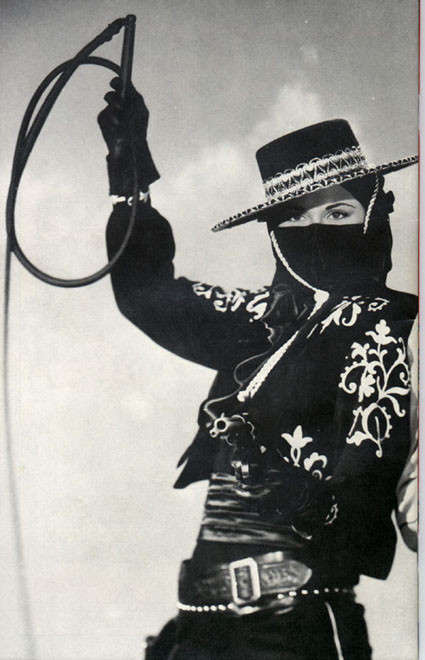Moolaadé
2004/DVD 2008
Director: Ousmane Sembene
Cast: Fatoumata Coulibaly, Maimouna Hélène Diarra, Théophile Sowié
Review by Nancy Keefe Rhodes
Many thundering, indignant tirades have rained upon another’s head already by the time Ciré Bathily’s first wife Kharjatou (Maimouna Hélène Diarra) finally loses her temper with his middle wife Collé (Fatoumata Coulibaly), whom she cherishes, lies for sometimes and secretly agrees with. Stopping the second wife dead in her tracks with an icy glare and pointed finger, Kharjatou commands Collé never to raise her voice again and banishes the younger woman to her quarters. And Collé meekly goes.
When this startling exchange occurs, Collé has the entire contemporary West African village of Djerisso in an uproar. In their husband’s absence, she’s allowed four runaway girls to seek refuge in the Bathily family compound, avoiding the purification rite of female circumcision that their local custom requires. (Two other little girls who also ran away threw themselves down the village well rather than submit to cutting.) Oumy, Diatou, Awa and Nafi – who look to be somewhere between the ages of five and maybe eight – tell Collé they sought her out because they’d heard that seven years ago Collé refused her own daughter’s purification. Then, Ciré (Rasmane Ouedraogo) and Kharjatou both let that defiance pass.
Now, with the simple act of tying a rope across the outer gate to their compound – so low that toddlers, chickens and baby goats routinely step right over it – Collé invokes the indigenous, ancient protection of “moolaadé” that only she can lift by uttering a single word aloud. Moolaadé alone trumps the relative new-comer Islam and leaves the red-robed Salindana – dour women who perform the circumcisions – thwarted, fuming, cooling their heels beyond the rope.
Worse, this all coincides with the triumphant return from Paris of Ibrahima Doucouré (Théophile Sowié), who passes out currency, pays his prominent father’s debts to the peddler Mercenaire (Dominique Zeïda) and expects to marry Collé’s daughter Amsatou (Salimata Traoré). He is undeterred that she is “bilakora” (uncut). His father initially let that pass too, despite several brief, wry scenes in which the older men vigorously reassure one another that they would never consider intimacy with such a woman.
More dramatic events follow – a public flogging, Ibrahima’s disinheritance, the forced and fatal cutting of little asylum-seeker Diatou (lured from safety by her mother), the peddler’s murder for interference, the furious confiscation and burning of the women’s radios. Guttenberg’s printing press sparked Europe’s Protestant Reformation by making Holy Scripture available to whoever could read. In remote Djerisso, this analogue of subversive blend of literacy with forbidden knowledge boils over when Collé tells the assembled village that – on the radio – she has heard the Grand Imam himself say that Islam does not require cutting. For good measure, she reports that a million uncut women make the pilgrimage to Mecca themselves every year, to which one elder responds, “You are Satan!”
Set in the West African nation of Burkina Faso and made in 2003, Senegalese writer and director Ousmane Sembene’s final film, honored first at Cannes and many times since, actually came to Syracuse last April, when Jean Jonassaint, liaison for French-language films to the Syracuse International Film Festival, screened it late one afternoon. Long available on DVD in Canada because of Quebec’s robust French-language cinema – indeed, films made in French hail from several continents and the Caribbean – Moolaadé only recently made it to US DVD.
It’s tempting to draw parallels between this film and current headlines on the basis of surface similarities – the seizure of children in Texas from the polygamous Fundamentalist Church of the Latter Day Saints over possible sexual abuse and on-going custody hearings – but that lens can be distorting. Last June we lost Sembene, an old lion’s death overshadowed here by the twin losses in July of Bergman and Antonioni, both – shades of John Adams and Thomas Jefferson – on the same day. Moolaadé is a good place to start if you don’t know Sembene’s work, with its finely calibrated performances and characters torn by the real dilemmas of personal affection competing with rigorous custom. With all the larger furor in their village, Collé earns Kharjatou’s rebuke because she embarrasses the older woman before her adult son with a moment of demanding, insistent inquiries, much as Ciré’s harsh older brother goads him into bullying Collé – his favorite wife – and so on. It’s a lovely and important film, likely to bust your categories.
*******
This review appeared in the 4/24/08 issue of the Syracuse City Eagle weekly in Nancy's column "Make it Snappy," which reviews DVDs of recent films that did not open theatrically in upstate New York & older films of enduring worth. Find Moolaadé as well as Sembene’s Black Girl, Xala, & Mandabi at netflix.com. Jean Jonassaint reports that the Syracuse International Film Festival plans a Sembene retrospective during its 2009 program. SIFF is underway now &ilms by & ill screen a number of films by & about women later in the week; see www.syrfilm.com.
AGORA: Dragged from her chariot by a mob of fanatical vigilante Christian monks, the revered astronomer was stripped naked, skinned to her bones with sharp oyster shells, stoned and burned alive as possibly the first executed witch in history. A kind of purge that was apparently big business back then.
.jpg)
CRITICAL WOMEN HEADLINES
4/28/08
Subscribe to:
Post Comments (Atom)



















No comments:
Post a Comment